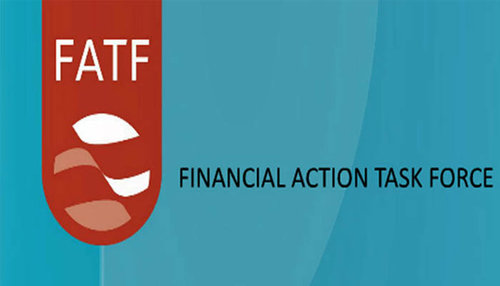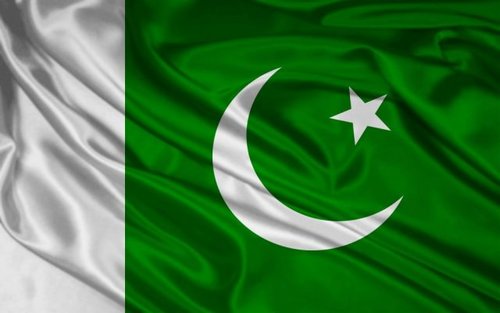Financial Action Task Force (FATF) has urged Pakistan to finish what it promised in June of 2018 by October of this year. Pakistan’s Ministry of Finance said on Friday that it will commit to the FATF’s action plan in a timely manner.
This statement by the Ministry of Finance was issued after a plenary meeting that took place in Orlando, Florida. This meeting reviewed the compliance of other countries as well as Pakistan’s, with the international standards of Anti-Money Laundering and Counter Financing of Terrorism (AML/CFT)
During the meeting, the members of the FATF board said “We strongly urge Pakistan to swiftly complete its action plan by October 2019 when the last set of action plan items are set to expire. Otherwise, the FATF will decide the next step at that time for insufficient progress.”
[adinserter block =”3″]
FATF also expressed concern about the fact that Pakistan has failed to meet the early two deadlines issued by them. The first deadline was for January 2019 and the second one was for May 2019. Pakistan failed to complete the action plan laid down by the FATF after both of the deadlines. FATF has urged Pakistan to swiftly complete the action before the October deadline.
Pakistan has been in the global money laundering watchdog’s sights since June of 2018. It was placed on the Grey List again after being off of it since 2015. It was placed on the list after an assessment of Pakistan’s financial systems and security mechanisms. Turkey and China were the only countries that opposed the move, while countries like the U.S.A, France, Germany, Britain, and India endorsed it.
Moves made by Pakistan towards the Action Plan

Source: Financial Times
Islamabad has made waves trying to crack down on money laundering and terror financing. The moves made include, no foreign currency transactions without a national tax number, no foreign currency exchange of over $500 without the submission of a national ID card’s copy.
In addition to that, in terms of stopping terror funding. Pakistan has denounced several militant groups and seized their assets, which include groups such as Jamat-ud-Dawa’h, and Jaish-e-Mohammad (JeM). Both these groups are responsible for the deadly Mumbai attacks of 2019 and several others.
Pakistan’s efforts towards the Action plan were deemed commendable. But it was still asked to “do more” during a meeting at Guangzhou, China, last month. At the forum, Pakistan’s compliance of 18 out of the 27 steps of the Action Plan was seen as unsatisfactory.
Let’s discuss what is the FATF and why Pakistan needs to get itself out of its “grey list.”
What is the FATF?

Source: Thenews.com.pk
The Financial Action Task Force (FATF) or as it is known in French Groupe d’action financière (GAFI) is an intergovernmental organization founded in 1989. Paris is the headquarter for FATF. Money Laundering was the FATF’s focus at the start, but in 2001, it expanding into terror financing as well. It monitors countries and makes sure that they are implementing FATF recommendation to strike down money laundering and terror funding.
[adinserter block =”15″]
The FATF has over 39 members including India, Isreal, the Gulf countries, U.S.A, France and many more. Non-cooperative countries are normally put on the Grey list. And if they are unable to cooperate with their guidelines again, they are blacklisted.
Pakistan is currently Grey-listed but if it fails to achieve the action plan until October it will be Blacklisted.
The FATF has specific recommendations for countries to battle money laundering and terror financing. The FATF completely revised the Forty Recommendations in 1996 and 2003.
- Implement relevant international conventions.
- Criminalize money laundering and enable authorities to confiscate the proceeds of money laundering.
- Implement customer due diligence (e.g., identity verification), record keeping and suspicious transaction. reporting requirements for financial institutions and designated non-financial businesses and professions.
- Establish a financial intelligence unit to receive and disseminate suspicious transaction reports.
- Cooperate internationally in investigating and prosecuting money laundering.
How does being on the Grey List affect Pakistan
Being included in the Grey List is bad for any country especially for Pakistan. Pakistan already has a very damaged reputation worldwide and having its name on the Grey List only adds fuel to the fire.
Furthermore, being on the Grey List also damages the economy. It conveys to the world that Pakistan’s financial system is in shambles and nothing is being done to fix it. Also telling the world that there is nothing being done to stop the terrorist organizations. This is taking a toll on Pakistan’s economy because there is little foreign investment in Pakistan.
Pakistan already has a bad reputation regarding terrorist funding. Accusations from India regarding this has the issue has become a routine trait, even though there hasn’t ever been substantial proof of the accusation being true. Being on the Gray list on the top of that has rendered Pakistan helpless. And even IMF refused to give Pakistan a loan in 2019 due to unforeseeable reasons.
Foreign banks such as Standard Chartered, Barclays, Dubai Islamic, E.T.C. Might pull out, if Pakistan is Blacklisted after October. This can prove devastating to Pakistan’s economy, as there is little to no foreign investment in Pakistan currently. Moreso, it can impact any new foreign investment plans that might have been brewing. Maybe EMAAR might pull out and stop the projects it has under-construction in Karachi.
There is hope still

Source: Samaa.tv
Only time will tell if Pakistan can bounce back and complete the FATF Action Plan this time. Or will its faith be sealed yet again? Regardless of whatever happens, Pakistan will make it out on top. As history has shown Pakistan always crawls out of a tough position one way or the other.
[adinserter block =”4″]
Pakistan has three months to come up with a strategy to complete the Action plan. It has already taken steps towards it and with the advancement in the telecommunications and tech side of things. Pakistan is very much capable of completing the Action Plan. Pakistan will need to develop a report to tell how it will tackle all of the challenges it faces currently. Three months is an ample amount of time to devise a well-detailed plan. And hopefully, Pakistan will find its way out from the Grey List!







